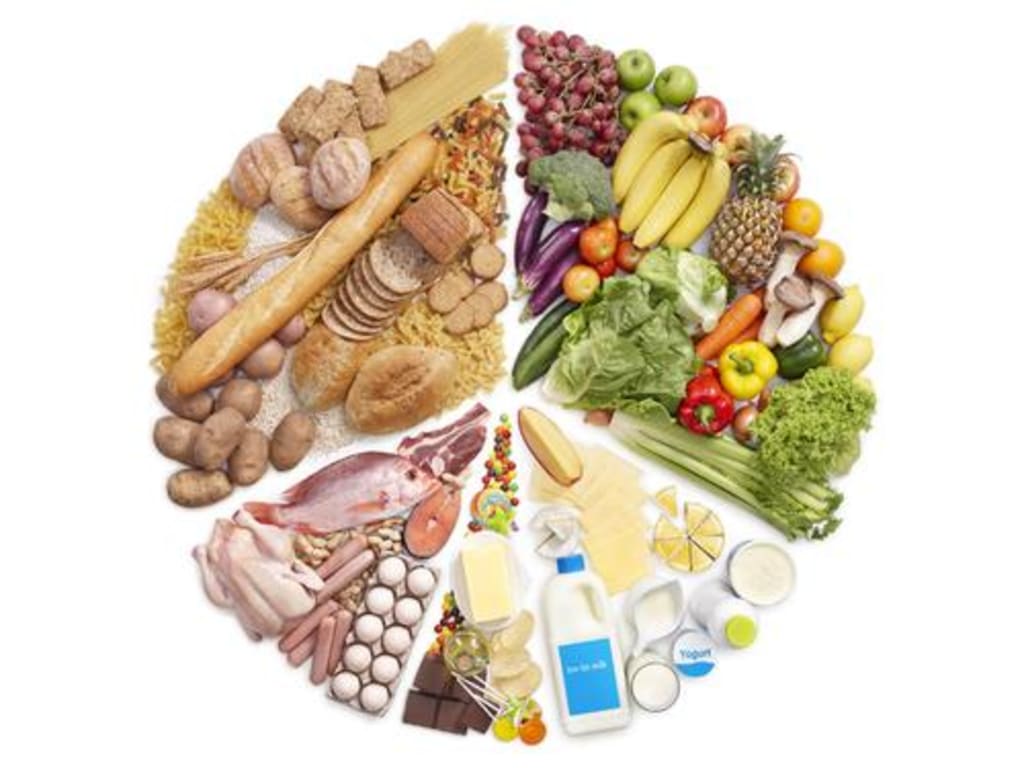Nutritional Needs for Different Life Stages: Children, Adolescents, Adults, and Seniors
nutrition and health

Nutrition plays a pivotal role in our overall health and well-being at every stage of life. As we age, our bodies' nutritional requirements change, and meeting these needs is essential to maintain optimal health and prevent the onset of chronic diseases. In this article, we will delve into the specific nutritional needs of various life stages: children, adolescents, adults, and seniors. Understanding these requirements can help us make informed choices about our diets, ensuring we provide our bodies with the necessary nutrients at each stage of life.
Children (0-12 years)
During the early years of life, proper nutrition is crucial for growth, development, and cognitive function. Children require a balanced diet that supplies all essential nutrients in appropriate proportions. Key nutrients needed during this stage include:
a. Protein: Essential for muscle and tissue growth, as well as immune system function. Sources include lean meats, poultry, fish, legumes, nuts, and dairy products.
b. Calcium: Vital for the development of strong bones and teeth. Dairy products, leafy greens, and fortified non-dairy alternatives are excellent calcium sources.
c. Iron: Supports cognitive development and oxygen transport within the body. Iron-rich foods include red meat, beans, lentils, and fortified cereals.
d. Healthy Fats: Essential for brain development. Incorporate avocados, nuts, seeds, and healthy oils in the diet.
e. Fruits and Vegetables: Provide vitamins, minerals, and fiber necessary for overall health and digestion.
Adolescents (13-19 years)
The adolescent stage is marked by rapid growth and development, making proper nutrition crucial during this time. Adequate intake of nutrients supports physical growth, hormonal changes, and mental well-being. Key nutrients to focus on include:
a. Calcium and Vitamin D: Crucial for bone health and development. Milk, yogurt, and leafy greens provide calcium, while sunlight is an excellent source of vitamin D.
b. Iron and Zinc: Important for growth spurts and hormonal changes. Red meat, whole grains, nuts, and seeds are rich in these nutrients.
c. Omega-3 Fatty Acids: Support brain development and cognitive function. Fatty fish, flaxseeds, and chia seeds are good sources.
d. B Vitamins: Play a vital role in energy production and overall health. Incorporate whole grains, lean meats, eggs, and legumes in the diet.
e. Hydration: Ensure adequate water intake to support growth and overall health.
Adults (20-64 years)
During adulthood, the focus shifts from growth to maintaining health, preventing chronic diseases, and supporting an active lifestyle. A well-balanced diet can contribute to increased energy levels and improved overall well-being. Key considerations for adult nutrition include:
a. Protein: Important for maintaining muscle mass, supporting immune function, and tissue repair. Diversify protein sources with lean meats, poultry, fish, legumes, tofu, and dairy products.
b. Fiber: Aids digestion, helps maintain a healthy weight, and reduces the risk of chronic diseases. Whole grains, fruits, vegetables, and legumes are rich in fiber.
c. Healthy Fats: Support heart health and cognitive function. Include sources like avocados, nuts, seeds, and olive oil in the diet.
d. Antioxidants: Combat oxidative stress and support overall health. Consume a variety of colorful fruits and vegetables, nuts, and green tea.
e. Limit Added Sugars and Processed Foods: Minimize the intake of sugary snacks, beverages, and processed foods to reduce the risk of obesity and chronic diseases.
f. Hydration: Stay adequately hydrated to support bodily functions and maintain energy levels.
Seniors (65+ years)
As individuals enter their senior years, their metabolism, digestive system, and nutrient absorption may change. Proper nutrition remains essential to support immune function, bone health, and cognitive abilities. Key considerations for senior nutrition include:
a. Calcium and Vitamin D: Support bone health and prevent osteoporosis. Dairy products, fortified non-dairy alternatives, and exposure to sunlight are beneficial.
b. Vitamin B12: Crucial for nerve health and red blood cell production. Fortified foods and supplements may be necessary, as absorption decreases with age.
c. Fiber: Supports digestive health and may help manage weight. Whole grains, fruits, and vegetables are excellent sources.
d. Protein: Maintaining muscle mass becomes increasingly important with age. Focus on lean sources of protein, such as fish, poultry, beans, and dairy products.
e. Omega-3 Fatty Acids: Support brain health and heart function. Fatty fish or supplements can provide an adequate intake.
f. Fluid Intake: Seniors may be at increased risk of dehydration, so it's essential to stay hydrated throughout the day.
Nutrition is a fundamental aspect of overall health and well-being at every stage of life. Understanding the specific nutritional needs of children, adolescents, adults, and seniors empowers us to make informed dietary choices that support optimal health. By providing our bodies with the right nutrients at the right time, we can foster healthy growth, prevent chronic diseases, and maintain an active and vibrant life throughout the years. Consulting with healthcare professionals and registered dietitians can further enhance personalized nutritional guidance for each life stage.
About the Creator
Reynol Brennan
A small blogger who shares emotions, life, life insights, and short stories, and provides everyone with happiness, growth, and common sense of life.






Comments
There are no comments for this story
Be the first to respond and start the conversation.